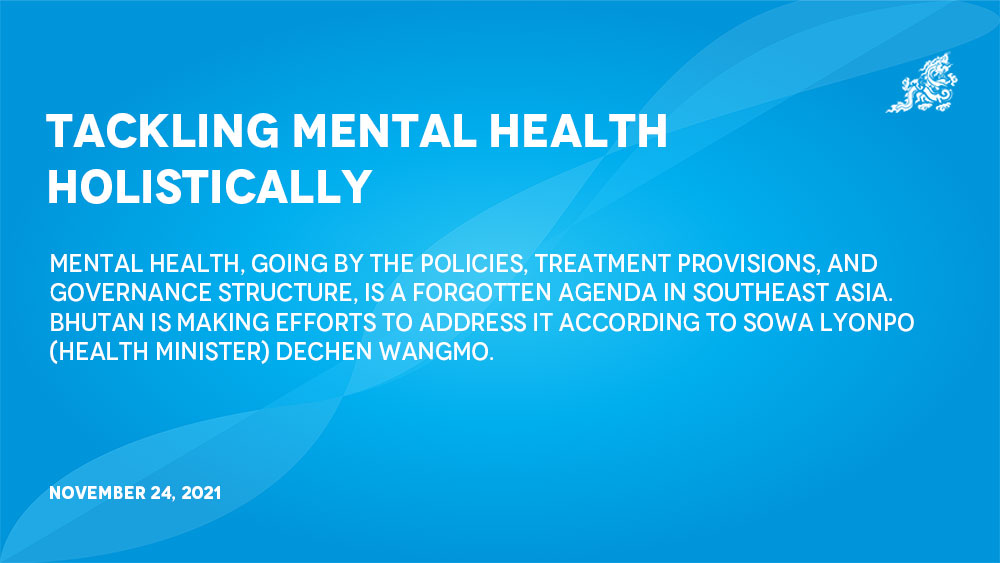Nima Wangdi
Mental health, going by the policies, treatment provisions, and governance structure, is a forgotten agenda in Southeast Asia. Bhutan is making efforts to address it according to Sowa Lyonpo (Health Minister) Dechen Wangmo.
Lyonpo said that Bhutan is fortunate to have Her Majesty the Gyeltsuen, who is dedicated and committed towards putting in place a comprehensive system and services for mental health through a holistic approach.
“We are tackling the issue in the most holistic manner we can, and I’m confident that our transformation in mental health will be different from the rest of the world,” Lyonpo said during a special Bhutan Dialogues Edition last week in Thimphu.
The holistic approach includes looking at the types of services available, the legislations in place, and treatment options for the mental health patients.
“We’re also looking at building the capacity and competency among school teachers who in turn can identify mental health issues in young people and then refer them without having to wait for designated counsellors,” she said.
Lyonpo Dechen Wangmo said mental health worldwide has not gotten the attention that it deserves. “Now this pandemic has made us feel the need to look at it as we all are going through it.”
Lyonpo said the Pema Centre, that the Gyaltsuen inaugurated recently at the Jigme Dorji Wangchuck National Referral hospital campus, will manage acute cases of mental health issues.
“Treatment components like detox will also happen there and will eventually be moved into a rehabilitation centre with a motive to make that person a productive citizen,” Lyonpo said.
She said that mental health was not something that we can look at it in isolation. “We have to look at the evolution around us, considering the context of developments that are happening and the evolution of tradition and culture. This is because what we have today is completely different from what it was a few decades ago.”
Talking about the budget for mental health, Lyonpo said the efficiency with which the services are coordinated within the sector is more important than the actual amount of budget allocated.
“Mental health is cross-cutting in nature because it is there the entire life cycle. That’s why we want to have a lifecycle-based approach where we look at from the time of conception until death,” she said.
The ministry also aims at teaching mental health concepts to students so that they can be resilient from a young age.
Earlier this month, to enhance mental health response in the country, a high-level committee was formed headed by the health minister.
The United Nations Resident Coordinator Office organised the dialogue in partnership with the Loden Foundation.


